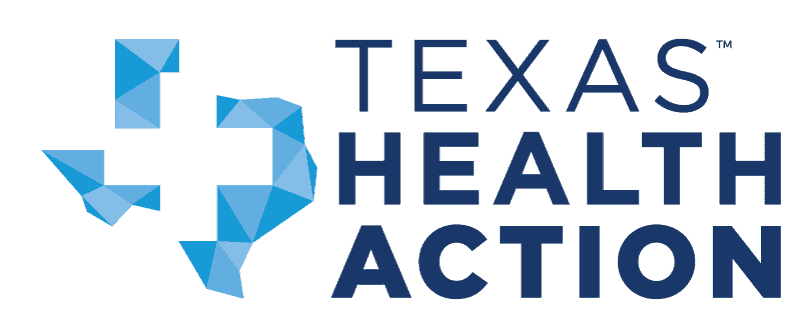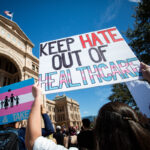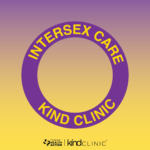Demand for STI testing outpaces public health capacity
Texas Health Action’s Kind Clinic provided more than 11,000 patient visits for walk-in STI/HIV testing in a judgment-free, culturally affirming environment last year, according to the organization’s Central Texas Community Health Report. The inaugural report shows demand for STI testing through Kind Clinic’s Community Health Program increased 176% to 11,260 patient visits from fiscal year 2021.
Since 2015, Kind Clinic—a program of Texas Health Action which provides sexual health services in a safe and supportive environment with expertise in serving the LGBTQIA+ community—has provided its services to patients at no cost. Until January 1, 2022, Texas Health Action received most of its funding through a medication reimbursement program. Gilead, a major manufacturer of HIV prevention and treatment medications, cut funding last year, causing THA to lose $9.2 million in revenue, and impacting its ability to provide free testing to the community.
“Community health programs that provide safe and affirming spaces are experiencing an increased demand, especially here in Austin,” Christopher Hamilton, chief executive officer of Texas Health Action, said. “There is already a critical lack of federal funding for STI prevention and treatment for local public health departments. This leaves providers like THA that specialize in care for LGBTQIA+ people in a bind—we’ve already seen a 53% reduction in our funding over the last year and if this continues, our community risks a public health crisis.”
Austin’s 2021 LGBTQIA+ Quality of Life Study indicated there are major gaps in testing, not just in the LGBTQIA+ population, but throughout the Austin community. When asked about STI testing, 57% of cisgender men and women and 25% of gender expansive respondents claimed to have never been tested.
Kind Clinic’s Central Texas Community Health report found the majority of positive STI tests conducted through the community health program included gonorrhea (43.22%) and chlamydia (42.75%), followed by syphilis (11.71%) and hepatitis C (0.38%). Among the 2,294 individuals who tested positive for STIs, 94.96% chose to receive treatment at Kind Clinic.
“We have seen a staggering number of positive STI test results in Austin over the past year,” Dr. Sandra Guerra, chief medical officer for Texas Health Action, said. “When we see rates like this, it is imperative that those individuals and their partners receive immediate treatment to reduce the risk of complications to a person’s health and reduce the opportunity of transmission to others. At Kind Clinic, we have the ability to treat those individuals in a timely manner, and to continue providing them with follow up sexual health care beyond that initial STI treatment.”
According to Steven Tamayo, director of community health for THA, fear of discrimination and insensitivity from healthcare providers historically has led many LGBTQIA+ patients to delay or avoid care. The LGBTQIA+ Quality of Life Study also found that due to prior negative experiences with healthcare providers, 19.2% of respondents delayed or canceled appointments, 15.9% didn’t seek medical care when they were sick, and 13.3% mistrust and avoid all medical professionals, and 26% indicated that they have never talked with their primary care provider about their sexual health.
“Stigma surrounding sexual healthcare compounded by the discrimination LGBTQIA+ individuals face in our state leads many members of the Queer community to avoid seeking the care they need,” Tamayo said. “Kind Clinic recognizes the trauma that comes from negative healthcare experiences and provides a safe, affirming space to receive STI testing and treatment.”
According to the Greater Austin Chamber of Commerce, Austin’s projected growth rate from 2020-2030 is 27.8%, well above the state’s rate of 12.9%. With the expected population growth in Austin, Texas Health Action anticipates the need for an increase in funding for STI testing and treatment to keep up with the increasing rates of STIs.
For more information about Kind Clinic’s Central Texas Community Health Report, please visit Kind Clinic’s Community Health Report.
About Texas Health Action
Texas Health Action (THA) is a community informed 501(c)(3) non-profit organization dedicated to providing access to culturally affirming, quality health services in a safe and supportive environment with an expertise in serving LGBTQIA+ people and people impacted by HIV. Since 2015, Texas Health Action has provided health services without stigma or judgment and has empowered the community through outreach and education. Texas Health Action operates Kind Clinic, which provides sexual health services through locations across Central Texas; TeleKind, which provides sexual health services via virtual visits and at-home testing; and Waterloo Counseling Center, which provides behavioral health services in Austin. Texas Health Action is led by CEO Christopher Hamilton. For more information about Texas Health Action and its programs, please visit www.TexasHealthAction.org.
About Kind Clinic
Kind Clinic offers free sexual health services in a safe and supportive environment regardless of race, creed, gender identity and expression, sexual orientation or ability to pay. Founded in 2015 by community activists and volunteers, Kind Clinic is a national leader in innovative sexual health care that offers patients access to HIV prevention medication known as PrEP (pre-exposure prophylaxis) and PEP (post-exposure prophylaxis), HIV testing and care, STI testing and treatment, and gender-affirming care in Austin and San Antonio. Kind Clinic is a program of Texas Health Action, a 501(c)(3) community informed non-profit organization dedicated to providing access to culturally affirming, quality health services in a safe and supportive environment with an expertise in serving LGBTQIA+ people and people impacted by HIV. For more information about Kind Clinic, please call 1-833-WE-R-KIND (1-833-937-5463) or visit www.KindClinic.org.
*Kind Clinic’s Community Health Report includes data collected during fiscal year 2022 (September 1, 2021 – August 31, 2022).


